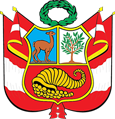PETROPERU rejects abandonment of populations near the North Peruvian Pipeline

Given the journalistic versions that indicate that the peoples of the Peruvian Amazon denounce abandonment after two years of oil spills, referring to the North Peruvian Pipeline (ONP), we state that:
- It is claimed that just over two years ago, 22 communities were affected by a dozen oil spills in the Pipeline. This statement is not exact. The 22 communities to which they refer are located 13 kilometers from the contingency caused by an external abrasion at kilometer 206 of the North Branch of the North Peruvian Pipeline in 2016. Therefore, they didn’t suffer an impact due to the contingency, and it must also be highlighted that in this area there was one contingency, and not a dozen events as wrongly reported.
- In any case, it is important to highlight that, of the 13 contingencies produced in 2016, 10 were caused by intentional cuts to the pipeline duly reported to the Public Ministry, and three by natural phenomena, among them the abrasion produced at the 206 Km. All these facts were duly verified and confirmed by the Peruvian police and judicial authorities. Moreso, the Supervisory Body in Energy and Mining (OSINERGMIN) - competent entity for the inspection and technical and operational verification of the ONP - did not find situations that merited initiating sanctioning administrative proceedings against PETROPERU and filed the investigations.
- It is also stated that the ONP has been in operation since 1974. This is not accurate. The ONP started its operations in 1977.
- Some testimonies of settlers are mentioned on issues of pipeline maintenance. In this regard, we clarify that the ONP can continue operating for many more years, thanks to the maintenance that it is provided. Proof of this is the low number of incidents that it has suffered for technical reasons. Of a total of 108 incidents suffered by the pipeline since the beginning of its operation, only 11 have been caused by technical reasons. The great majority were caused by acts of third parties (63%) or by natural phenomena (25%).
- The ONP has received constant maintenance since its start-up. In recent years it has been maintained with the most advanced technology so that it can operate with adequate risk management. As of this year, it has begun its process of modernization and technological updating to further reduce the risk of contingencies.
- Notwithstanding the foregoing regarding the location of the communities that are reported as affected, we must inform that PETROPERU has provided them with food and medical campaigns to attend the residents of the population centers and communities near the contingency. from kilometer 206 of the North Branch.
- In line with this, PETROPERU delivered a total of 1,835 tons of food and water to the 22 communities mentioned in the note. Likewise, a total of 15,292 medical attentions have been performed. A total of 3,438 workers were hired to work on the remediation for over a year. 3,000 educational packages were delivered to schools, as well as laptops, acrylic boards, printers and other educational materials. With the support of the Company, poultry production projects, bio-gardens, implementation of water services for human consumption, among other projects are being developed in the area.
- This support to communities close to this and other contingencies was provided exclusively in compliance with the Company's internal regulations and within its social responsibility policies. However, they cannot be maintained indefinitely, only while the emergency lasts, since these services are in charge of the corresponding sectors of the State. PETROPERU also acts as facilitator and articulator through support actions to the sectors of the State to manage commitments and activities in favor of the communities.
- In that sense, the thousands of medical examinations and treatments practiced in communities close to the contingencies revealed the presence of endemic and pre-existing diseases in the region (including those mentioned in the note), and did not show any complaints attributable to the contact with oil from these incidents. If cases diagnosed with clinical pictures attributable to the crude oil had been presented during the contingency period, PETROPERU would have attended them immediately since it has specific procedures for these cases.
- In any case, the Ministry of Health (MINSA), the entity responsible for health issues in Peru, has not issued any rule or provision that indicates the existence of health problems linked to contingencies. So far it has been legally established -both in national and international headquarters- that the health problems in these communities have been made visible, but not caused by contingencies.
- PETROPERU carries out its operations under the premise that there are shared interests between the communities and the industry. Based on this, he develops "The Way We Want", a strategy that seeks to establish a frank, sincere and lasting friendship with the communities and populations neighboring its operations. Within this framework, it has launched a Plan for the clearing and Early Warning System to benefit the communities adjacent to the ONP with works to clean the right of way and surveillance through a rotating system, with a gender quota and support for formalization. of communal enterprises and of the communities themselves, among other benefits, with the purpose of gradually incorporating them into the responsibility of caring for the infrastructure and strengthening the company - community relations.
- Additionally, a social responsibility program has been developed with activities related to the creation of productive capacities, health care, educational support, among others.
COM-38

